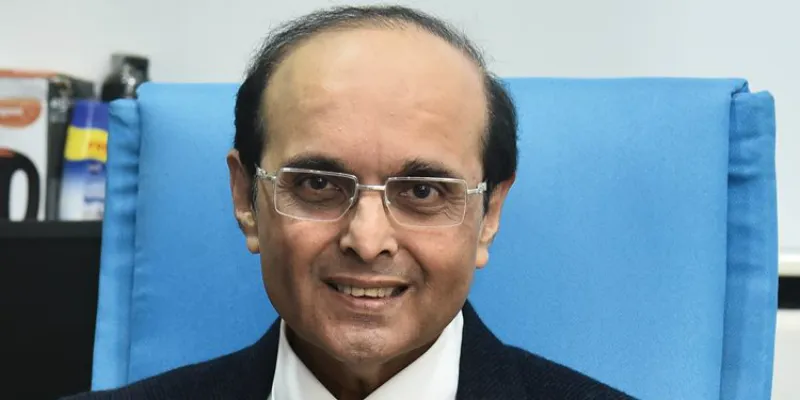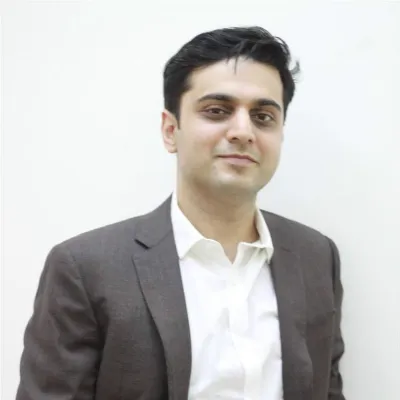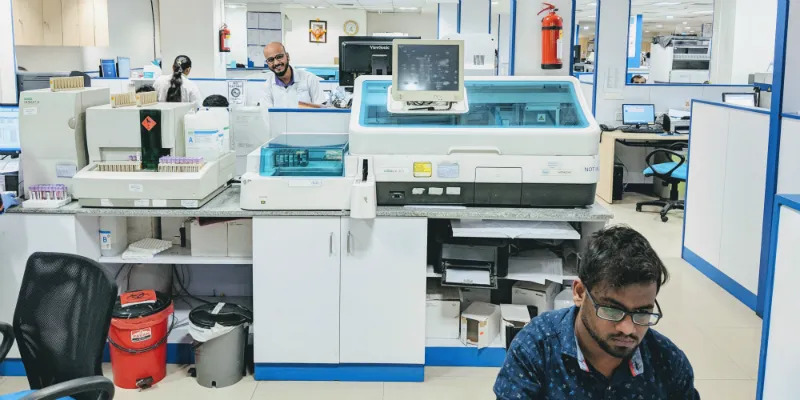How Dr Avinash Phadke Pathology Labs is fighting the phenomenon of inaccurate lab diagnoses
Pathology is the science which examines the causes and effects of diseases through laboratory examination and diagnosis of samples of body tissue. In India, there are thousands of laboratories that deal in these diagnostic services.
However, pathology is largely an unorganised sector, especially in tier II and tier III cities. Here, pathology labs (or path labs) are often run by non-qualified or under-qualified technicians. Lack of experience and qualifications could lead to complications in diagnostic reports.
A general lack of strict regulations in the past led to these labs cropping up all over the country. However, these labs contribute to the growing healthcare sector in India despite being run by under-qualified people. This is one of the major challenges facing the organised pathology sector.
These labs are a threat for almost all other stakeholders in the pathology and diagnostic ecosystem. For doctor-turned-entrepreneur Avinash Phadke and his eponymous pathology company Dr Avinash Phadke Pathology Labs, the unorganised sector represents a threat to the overall well-being of patients and leads to increased morbidity and mortality.

Avinash Phadke, Founder, Dr Avinash Phadke Labs
“Pathology as a sector has a lot of potential to bring about revolutionary changes to the medical fraternity and in the lives of patients. But almost all of us, part of the diagnostic industry, face the same challenges, and the unorganised sector is a big one,” he says.
The path lab chain founder says that the under-valued role of pathology and the burden on the private sector to import expensive machinery are the other challenges. But a well-established player like his lab chain can afford to expand into tier II and tier III cities and still retain its customer base.
In an exclusive interaction with SMBStory, Avinash Phadke, Founder, Dr. Avinash Phadke Path Labs, narrates how he started the business and talks about the pathology ecosystem in India.
Edited excerpts:
SMBStory: When and why did you start Dr. Avinash Phadke Path Labs?
Avinash Phadke: Dr. Phadke Labs was originally started by my father, Achyut Phadke, in 1963. It began in Mumbai as the first andrology centre, which is a medical branch dealing with male fertility. However, with the proliferation of illegal pathology labs, there was a need to set up doctor-led diagnostic centres in the city for proper testing and healthcare services.
Thus, my wife, Vandana Phadke, and I started several pathology tests and services, leading to the establishment of Dr. Avinash Phadke Pathology Labs in 1980. I hold MBBS and MD degrees in Pathology and Vandana is an MBBS doctor with over 30 years of experience in the medical field.
We set it up with a conscious effort to create a dependable, holistic medical centre for high quality accurate and precise diagnosis. Now, our central laboratory, named ‘Udyam’, is located in Shivaji Park, Mumbai.

Ajay Phadke, Centre Head, Dr Avinash Phadke Pathology Labs
SMBS: What services does the lab chain offer to customers?
AP: We study various diseases in-depth. We perform screening and testing of patient samples, received from across the country, to understand the cause of the disease and accordingly guide the clinicians to reach a diagnosis.
We offer up to 3,000 different tests to patients, performing more than 30,000 tests a day, with a team of 700 employees which include over 30 MD pathologists. We also have an annual co-branding partnership with SRL Diagnostics. Our standalone annual turnover is approximately Rs 120 crore.
Over the years, through providing high quality services and cementing strong associations, we built our legacy further and today we cater to 10,000 patients per day through 26 laboratories set up across Mumbai,
My son, Ajay Phadke, is a Centre Head and is striving to bring next gen technology to tests and pathological services in our lab. He has developed new age tests in infertility such as Sperm Function Assays, DNA Fragmentation, etc.
SMBS: How did the company diversify into so many categories?
AP: Before the andrology centre became a pathology lab, it only performed few routine tests and investigations in male infertility. After Vandana and I joined in 1980, we set up departments such as histopathology, microbiology, immunoassay, molecular diagnosis, and genetics. We also brought automation to existing tests, thereby improving technological proficiency of testing and investigation procedures at the pathology lab.
In 1985, we started Histopathology testing and gradually moved towards improving and expanding the departments through newer technologies. This continued up till 2000. Then, we started a full-fledged microbiology setup, one of the first in India. Our lab was also one of the first labs in the private sector to get the prestigious NABL accreditation.
We started genetic testing in 2004 in association with Hema Purandare, and expanded into in-house molecular diagnostics services in 2017. We have been continuously working towards enhancing our pathological services and our lab technology.
SMBS: How are you using digital in your business journey?
AP: Patients can go online to book a home visit for their blood tests online. We offer 3,000 different tests along with comprehensive healthcare packages. Certain tests will require patients to upload prescriptions signed by their doctors, which are further verified on the platform. Unless patients choose a preventive healthcare package or a set of preventive tests, we ask to see the doctor’s prescription.
After the test is booked online, we schedule the home visit and sample collection timing, according to the patient’s preference. The patient immediately gets a booking confirmation via sms and email along with the contact details of the lab and the visiting technician. The patient is digitally kept updated about all the proceedings, right from sample collection to delivery of the sample to the arrival of test reports.

Dr Avinash Phadke Pathology Labs is headquartered in Mumbai
Patients can register on the platform with a user ID and password and get access to their reports online. Our platform is SSL encrypted, which ensures that all data shared between the patient and us remains private and confidential. Alternatively, we also email the reports to patients. We currently undertake 250-300 home blood collections per day through each of our labs, although some patients still prefer coming to the lab and getting the test done.
SMBS: What are your challenges in terms of bringing diagnostic healthcare to the masses?
AP: The biggest challenge, from the perspectives of business growth and patient safety, is the proliferation of unauthorised pathology labs. In India there are approximately 1.5 lakh path labs, of which 50 percent are run by under-qualified technicians. Inexperience and lack of qualification gives rise to erroneous reports, incorrect diagnosis and increases patient distrust in pathology.
Further, the contributions of a qualified pathologist are undervalued even today in the industry. Nearly 70 percent of clinical decisions are made on the basis of pathological findings. It is highly unfortunate that this section of the healthcare industry is so undermined, simply due to lack of awareness of the role of pathology.
Additionally, nearly 80 percent of healthcare in India is under the private sector. Private players have to incur heavy healthcare costs that arise from importing machinery. It is necessary for the government to intervene and provide financial aid to the sector. With a high population count such as ours, it is impossible for one section of the industry to bear the expenditure. Cost burden must be lifted through public-private partnership healthcare schemes.
SMBS: What is your advice to people who want to set up their business in the same sector?
AP: There is a common notion that pathology is a business. It not a business, it is a medical profession. Business is a by-product of the services you provide. The decisions we take impact patients’ lives directly. So unless you have certain medical experience, not necessarily in the field of pathology, but in other branches of the medical or healthcare industry, it is not advisable to start a business in this field.
The healthcare industry is expenditure-heavy. India does not have the technological capacity to provide healthcare accessibility to every part of the country. Neither do we have enough cost benefit to invest in or build the necessary machinery ourselves. Hence, there is a cascading effect on the patients i.e, a lack of access to healthcare, key tools of healthcare, and medical professionals.
In today’s time, starting a laboratory from scratch is a difficult prospect. It becomes a lot easier if you have a pre-set up. Starting an individual lab, then growing and sustaining it will become difficult, as there is already a lot of competition, especially in metro cities. If you want to start an individual lab, it would be advisable to start it in tier II and tier III cities, where there is a greater lack of good healthcare facilities.
SMBS: What is the way forward for Dr Avinash Phadke Labs?
AP: Currently, we are primarily focussing on western suburbs, and are in the process of expanding further within Mumbai and Navi Mumbai. This is a step towards making our special diagnostic services available to people through state-of-the-art facilities in every part of the city. In the near future we also aim to expand to other tier I and tier II cities in Maharashtra.
We are looking at collaborating with doctor clinics and hospitals and working together to provide quality and affordable healthcare to patients in every city. Finally, we are furthering developments in molecular diagnostics and genomics, which are fast-growing branches and will boom in the coming years.
ALSO READ:
'We see few women in leadership positions in healthcare': Ishiqa Multani of Sagar Hospitals
Trying to lose weight? Food Darzee tailors diets, delivers 4 keto meals for Rs 900 a day







